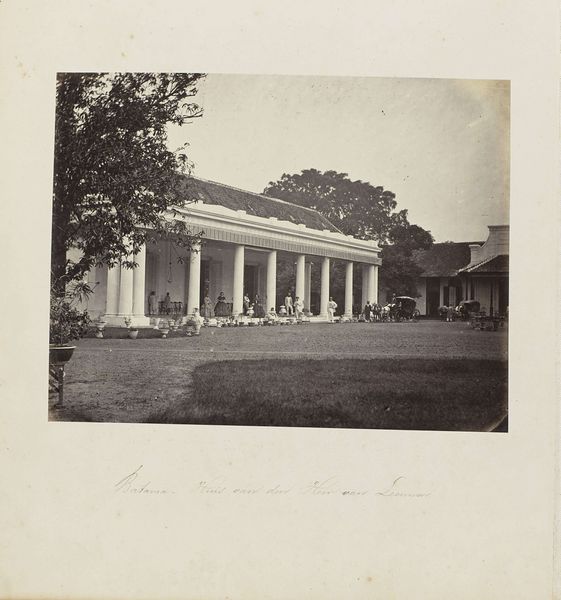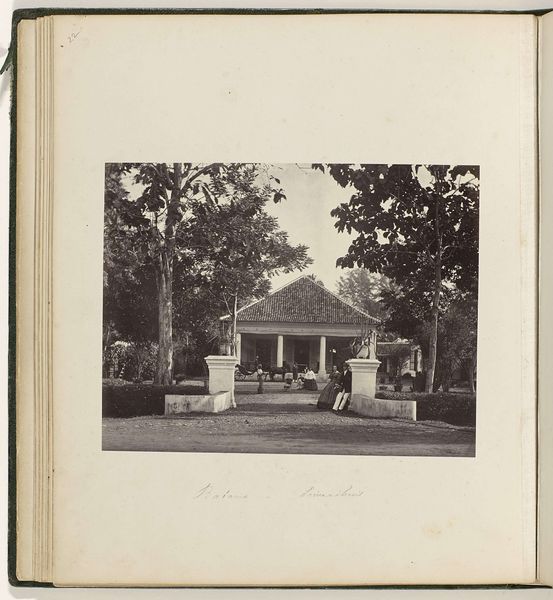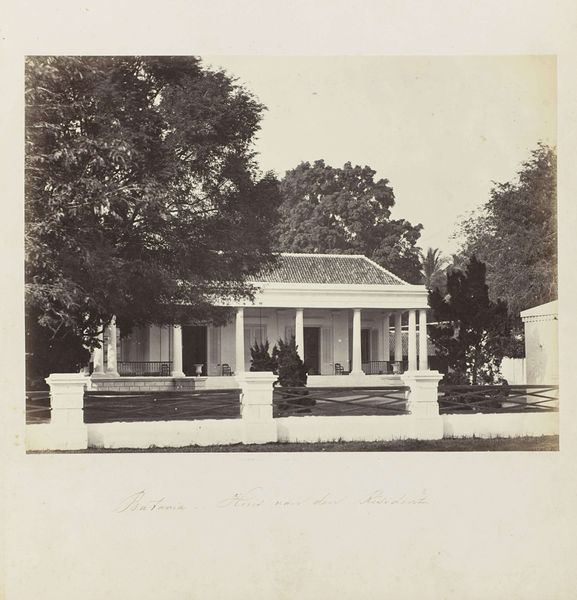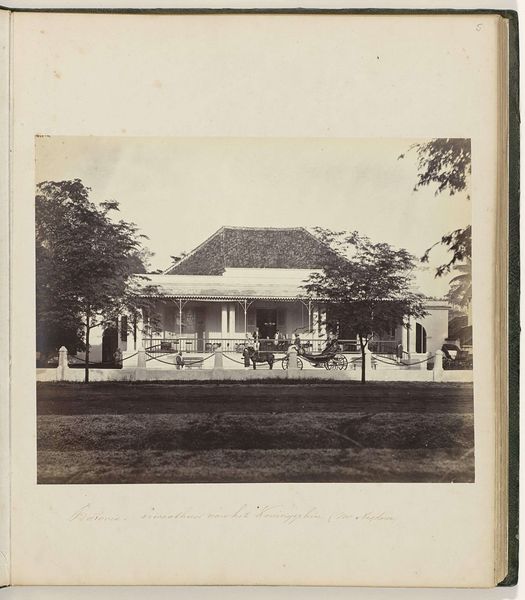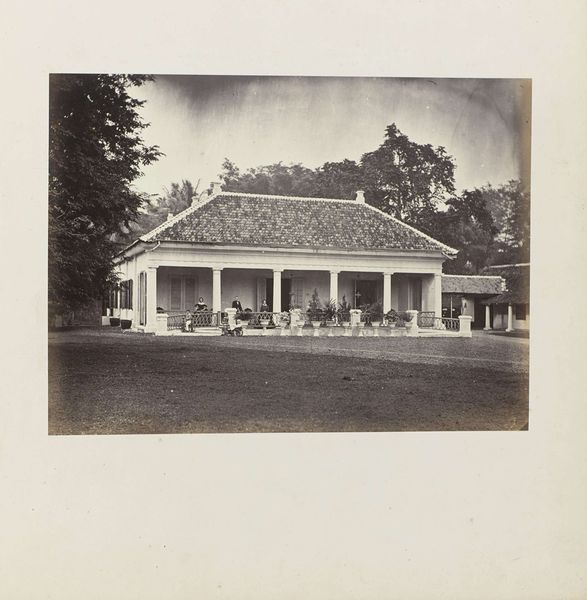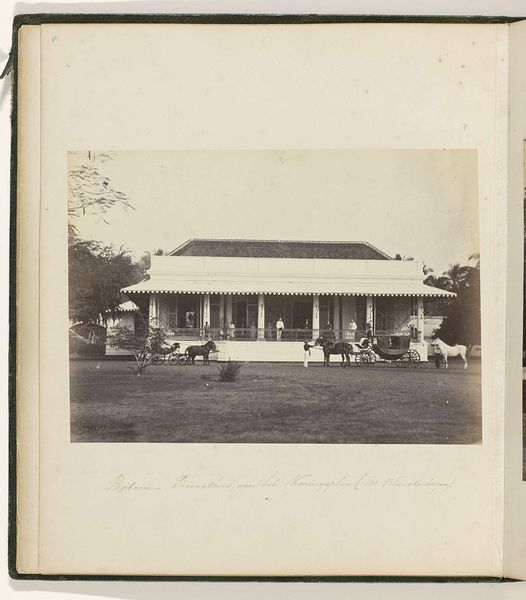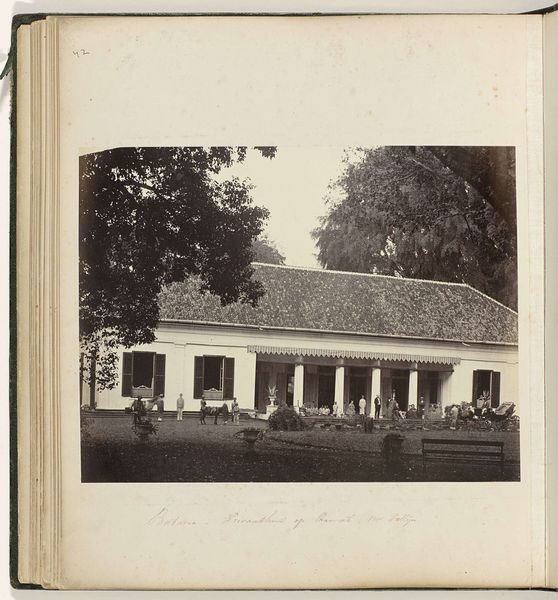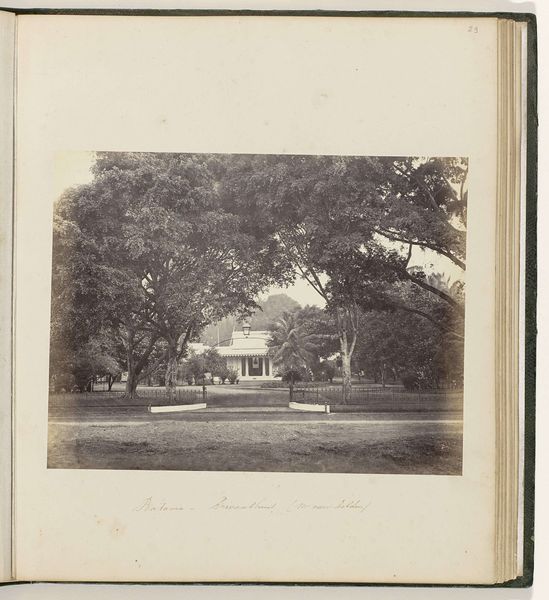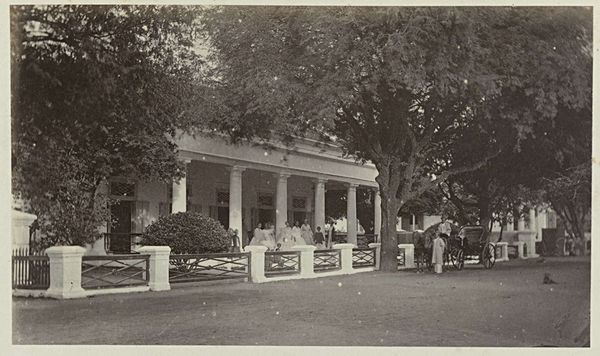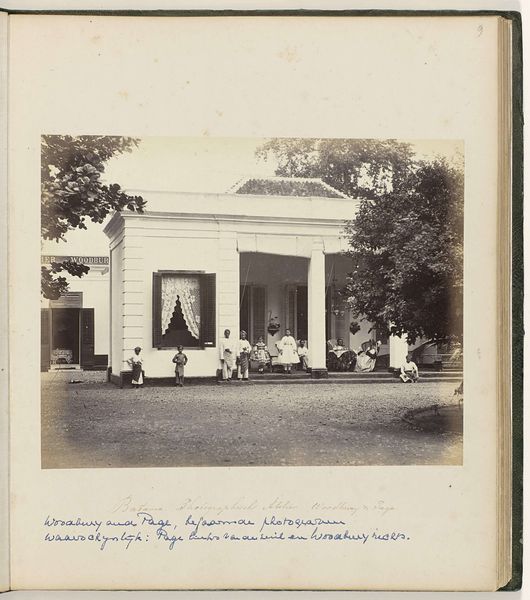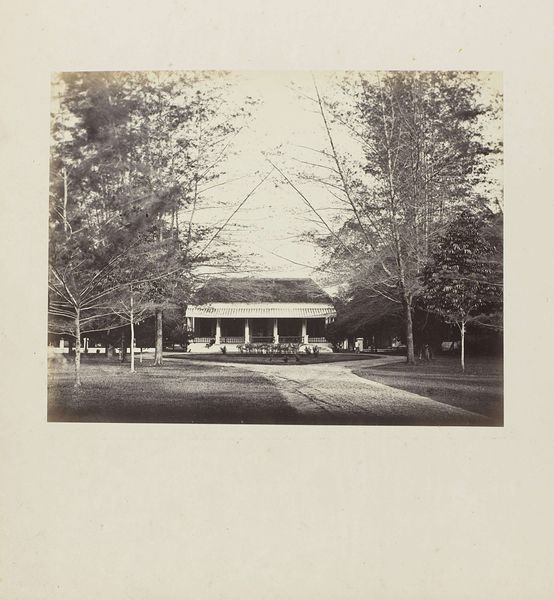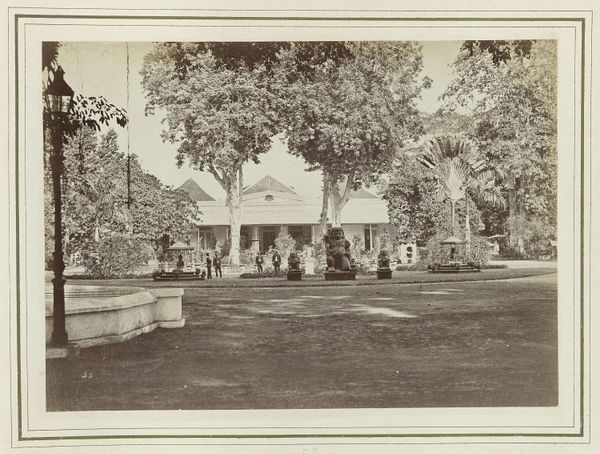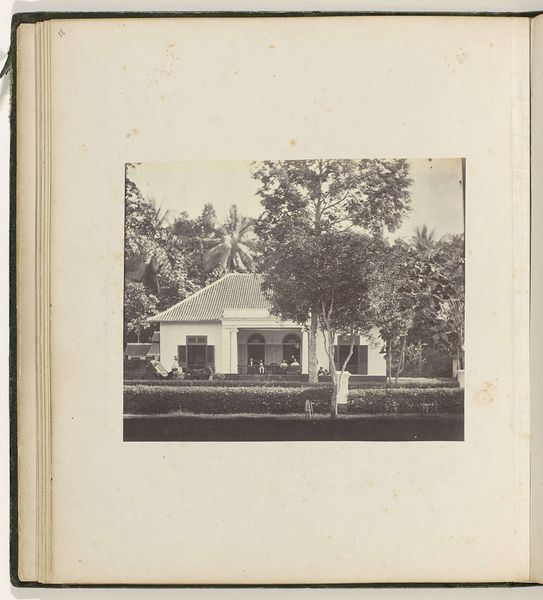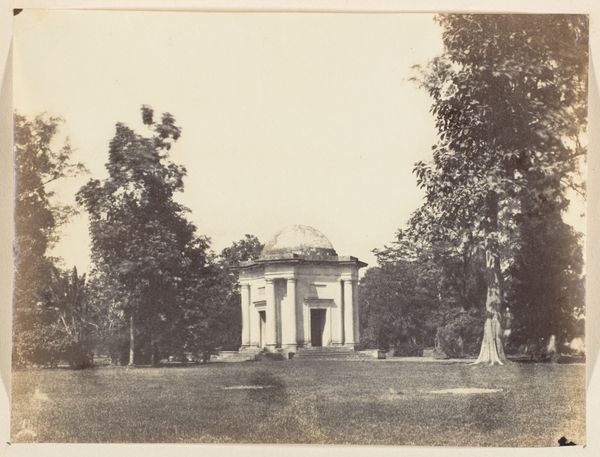
photography, albumen-print
#
landscape
#
photography
#
orientalism
#
cityscape
#
albumen-print
Dimensions: height 202 mm, width 270 mm
Copyright: Rijks Museum: Open Domain
Curator: This albumen print, “Batavia - Marine Hotel," was produced between 1863 and 1866 by Woodbury & Page. It's currently housed here at the Rijksmuseum. What strikes you most about it? Editor: Well, first, there's a subdued and serene atmosphere. The monochromatic palette emphasizes the geometry of the building and its colonial order. It’s monumental but subdued. Curator: I find this photograph significant within the context of Dutch colonialism and orientalist representation. Notice how the meticulously constructed building embodies the imposing structures that signified Dutch control. Editor: Yes, and its architecture surely reflects a blend of European aesthetics imposed upon the Indonesian landscape, a visual representation of power dynamics at play, and the alienation for native inhabitants. Curator: Precisely. This image also gives clues regarding the creation of this hotel. A place supposedly for relaxation and leisure, yet serving as a symbol of occupation. How does this contribute to constructing an identity of place, or what cultural narrative is imposed upon a society and civilization? Editor: The light itself plays a role. The sharp definition of the hotel's columns and the contrast with the shaded areas around the structure underscore the artificial imposition of structure upon nature. I find the framing, with the building set back in the composition and partly hidden by the landscaping, revealing. Curator: In that case, it subtly signifies control over the area, with the natural landscape being molded around the structure to emphasize its dominance. Editor: The shadows cast create this rather liminal space, doesn't it? Neither fully embracing the tropical environment nor fully detached. It reminds us of these complexities and paradoxes during colonial periods. The photography served the empire back then to propagate its own version of order. Curator: Right, photographs like these functioned within a system of cultural representation, subtly perpetuating the colonial narrative, not always explicitly, but subtly shaping perception. It’s crucial to recognize the biases and agenda. Editor: Indeed, analyzing through these frames makes it impossible to view this photograph merely as a picturesque depiction. Curator: It's a document entangled in a web of historical and societal tensions, forcing us to question what it truly reveals and conceals about that historical time and our perception and understanding of power and representation now.
Comments
No comments
Be the first to comment and join the conversation on the ultimate creative platform.
